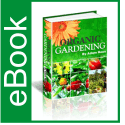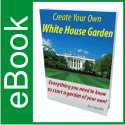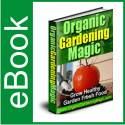Container Organic Gardening
Container Organic Gardening
Article by Timothy Samuel
Container Gardening Advice, Ideas Design and, Pictures. Whether you are
getting up the nerve to try growing a few petunias, or are have a full
fledged container garden vegetable farm, you’ll find useful information here.
What you need to know to get started container gardening. Making beautiful
container gardens can be quick and easy of choosing a Container for your
garden. Five flowering plants for sun even a laundry basket can make a great
container garden. This approach dovetails nicely with my own philosophy which
I call “Slacker Container Gardening ” In a nutshell, in my container garden,
the aim is not perfection, it’s about gardening like you live and enjoying
the process. Another important tenet of “Slacker Container Gardening,” is to
keep it guilt free. I want my container gardening to be a guilt-free zone. I
will make mistakes, I’ll even make some really ugly container gardens, which
I’ll either fix or kill, but either way, it’s just a waste of time and energy
to feel guilty about it. My one request is that someone reminds me of this
philosophy in the middle of the summer, when I suddenly revert back to being
a type A, container gardener. Potting soil a lightweight potting mix is
needed for container gardening.
Gardening in containers is one of the most versatile and creative forms of
garden design. Potting mix most container gardeners have found that soilless
potting mix works best. Some helpful techniques, including choosing
containers and growing media potting mix, selecting plants, and planting,
fertilizing, and watering your container garden, are discussed in this
publication. Styrofoam peanuts can be used in the bottom of the container
rather than filling it fully with potting mix. Potting Soil A lightweight
potting mix is needed for container gardening. Media A fairly lightweight
potting mix is needed for container vegetable gardening. Most potting
mixtures become compacted and plants become root-bound over time. Organic the
ideal container medium must be porous to drain well but high enough in
organic matter to hold water, because roots require both air and water.
Packaged potting soil available at local garden centers may make a good
container medium but be sure that it is not too high in organic matter.
Organic fertilizers such as fish emulsion or blood meal can also be used if
desired, but may be available too slowly for actively growing plants, or may
develop sour aromas.
Container vegetable gardens guidelines for how to create container vegetable
gardens for those with no yard. Container vegetable gardens are another great
alternative for those that don’t have access to back yards. Soils are best
suited for vegetable container gardening. The primary keys to successfully
growing vegetables in containers are to plant them in the proper-sized
container and to keep them watered. Durability and Cost Pots that are porous
may look more natural but can deteriorate quickly if consistently exposed to
moisture and freezing temperatures. Wood are the most natural and blend into
the garden seamlessly, while stoneware provides colors to the mix, plastic is
less expansive but seemed to be odd in the natural setting.
One more thought:
Never reuse the same potting soil from the previous growing season because it
may contain disease organisms. Most municipal water systems on the Front
Range are from mountain sources which are excellent and cause few problems.
However, water from wells and much of the Western Slope is often high in
salts or carbonates which will cause some problems. Salt build-up is damaging
to plants causing burned leaf edges, stunted growth, and fewer blooms. If
saucers are used to catch drained water, empty them to prevent salt buildup.
Kerry Smith, Extension Home Horticulture Specialist, Auburn University.
Soil straight from the garden cannot be used because it will not drain fast
enough, resulting in too little air for the roots, and it pulls away from the
sides of the pot when dry. Decoration Pots of blooming petunias make the most
austere entrance or sparsely decorated balcony or deck feel warm and inviting.
Time-release fertilizer and automatic watering systems can reduce that time
even more. Carefully selecting plants will result in a beautiful, yet
functional, display with function. Doing so may cause fertilizer burn and
kill your plants. If you are away a lot, consider an automatic drip emitter
irrigation system. Do not add more than the recommended rate of any
fertilizer, since this may cause fertilizer burn and kill the plants. Just
because a little is good for the plants does not guarantee that a lot will be
better. For more tips on gardening go to http://www.Teegoes.com
About the Author
Timothy Samuel I live in Wilmington,De enjoy writing on many topics from food to travleing. And you hope my articles be enjoyable and helpfull to all.

 December 31, 2011
December 31, 2011 







